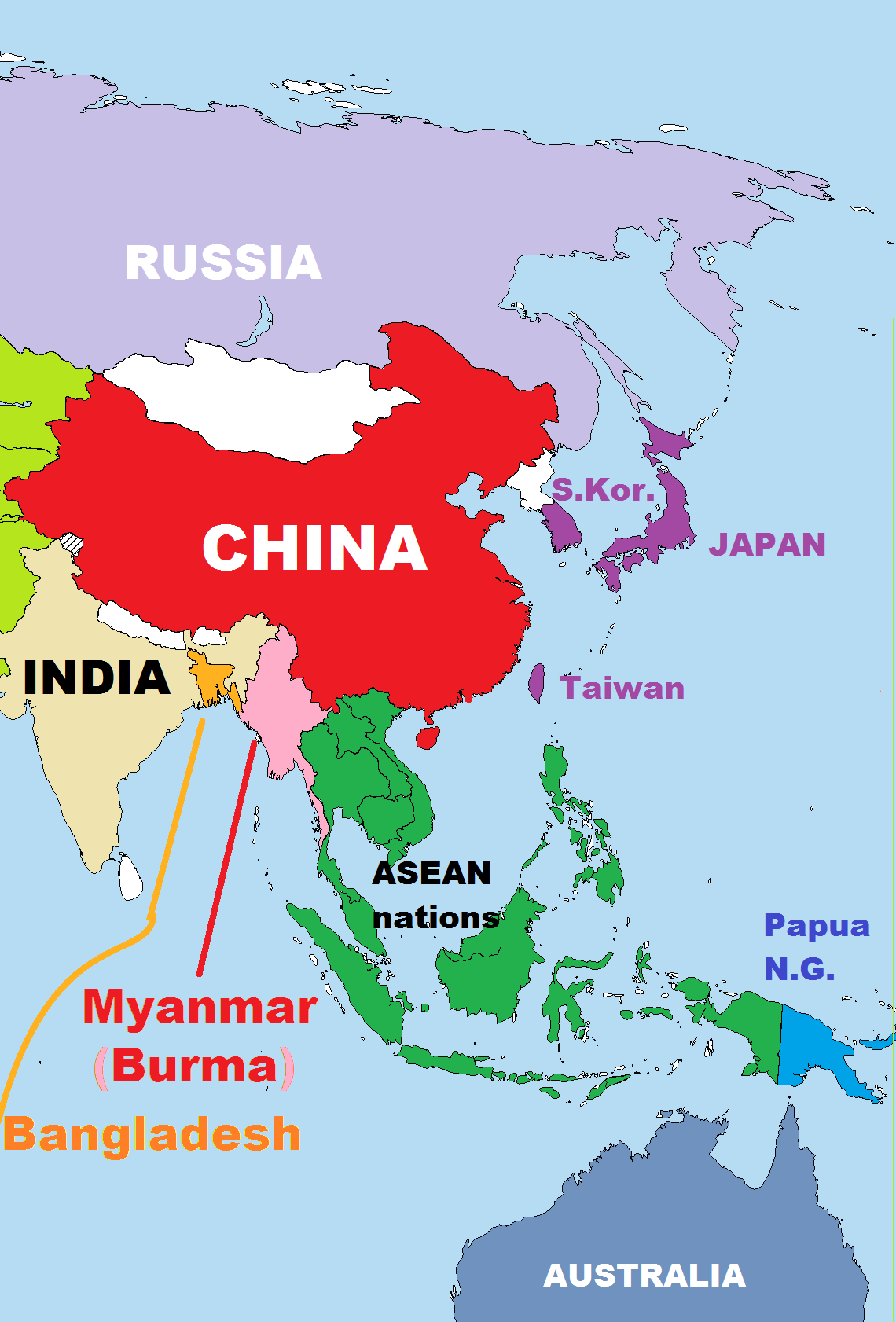The Rohingya Crisis:
A Note About
SOURCES
Compiled by
Richard Harris
Rohingya Crisis News is primarily a list of (and links to) major media articles about the Rohingya Crisis -- from leading English-language media outlets, official government agencies and international organizations.

|
|
Reporters Wa Lone (left) and Kyaw Soe Oo at work at the Reuters News Service office in Yangon, Myanmar, Dec 11, 2017, shortly before their arrest. They had recently uncovered the first clear photographic proof of Myanmar military's atrocities against Rohingyas -- a mass killing in Inn Din. Shortly after this photo was taken, they were, according to a police captain's later testimony, "set up" by the government, and arrested for receiving "government secrets." They face several years in prison. The police captain who testified in their defense has been jailed, as well. A. Slodkowski © 2017 Reuters
|
A note about
INTERNATIONAL DATES:
Events happening in Myanmar
may be reported
in Western media
on
"the day before,"
because
they happen on the other side
of the International Date Line
(The morning of Sept.19
in Burma/Myanmar
is the evening of Sept.18
in New York
).
|
|
ROHINGYA MEDIA
These sources appear to provide coverage from, or to, the Rohingya population and diaspora. (CAUTION: Their origins, independence, credibility and security have NOT been checked, nor evaluated, by this site's editor.):
ROHINGYA-LANGUAGE MEDIA
ENGLISH-LANGUAGE ROHINGYA MEDIA
|
Most of these articles are from the world's four major news services:
AP (Associated Press)
Reuters News Service
AFP (Agence France-Presse)
BBC (British Broadcasting Corp.)
These highly reputable news services are the backbone of global news, and the chief news source on international affairs for the world's leading English-language broadcasters and news publications. Their information (and often, word-for-word, their original articles) are published daily in the most reputable newspapers and magazines, and broadcast outlets, throughout the world -- from the New York Times and PBS TV on the left, to Fox News and U.S. News on the right.
In most cases, the sources cited in Rohingya Crisis News are newspapers or broadcast outlets which use those news agencies' material -- particularly these leading global news sources (from a wide range of geographic and political perspectives):
-
Broadcasters:
...in the U.S.:
- CBS News
- NBC News
- ABC News
- Fox News
- CNN (Cable News Network)
- NPR (National Public Radio)
- PBS (Public Broadcasting Service)
...and abroad:
- BBC News
(U.K., and globally)
- CTV (Canada)
- CBC (Canada)
- ABC-Australia
(Australian Broadcasting Corp.)
- Channel NewsAsia (Singapore)
- NDTV (India)
-
Newspapers & News Magazines:
...in the U.S.:
- New York Times
- Washington Post
- Wall Street Journal
- Chicago Tribune
- Los Angeles Times
- USA Today
- TIME Magazine
- U.S. News
- Newsweek
...and abroad:

- The Guardian (U.K.)
- The Independent (U.K.)
- The Times [of London] (U.K.)
- The [London] Daily Telegraph (U.K.)
- Toronto Globe & Mail (Canada)
- ...and others
...particularly in the conflict region
(which also often provide their own
well-informed direct reporting,
close to the scene):
- Sydney Morning Herald
(Australia)
- Straits Times
(Singapore)
- New Straits Times
(Malaysia)
- The Star
(Malaysia)
- Bangkok Post
(Thailand)
- The Irrawaddy
(Myanmar)
- Daily Star
(Bangladesh)
- Dhaka Tribune
(Bangladesh)
- The Times of India
(India)
- The Hindu
(India)
- The Hindustan Times
(India)
- ...and others
-
Additionally, prominent international affairs organizations have been cited, including:
- United Nations
- U.S. State Dept.
- Human Rights Watch
- Amnesty International
- Medicienes Sans Frontieres
(Doctors Without Borders)
- Council on Foreign Relations
- ...and others
NOTE that, in the interest of credibility, most cited sources are in nations with a free press. RCN generally (though not totally) refrains from citing media in nations where the press is censored, restricted, or government-controlled.
Some articles, however, are occasionally cited from sources in authoritarian countries (or countries where press freedom is endangered) -- including, notably, in Myanmar, China, Turkey and Saudi Arabia -- because of the significance of that country to the Crisis, or as a significant political, military, economic or media power, with the means to influence circumstances in Myanmar and/or Bangladesh, directly or indirectly.
However, articles from such sources are usually limited, and the source annotated with the appropriate cautionary note. Readers are advised to view such content with caution and/or skepticism.
For more information on sources, and how they were selected and used, see:
"Sources for Rohingya Crisis News".
)
|

